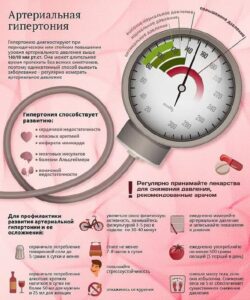SHARE WITH FRIENDS:
🩸 Arterial hypertension (hypertension) is a disease characterized by an increase in the level of hydrostatic blood pressure in the blood vessels. Depending on the nature of its formation, it can be primary or secondary. Normal pressure is 100/60 to 140/90.
⁉️ The disease occurs as a result of disruption of the tone of the walls of arteries and arterioles (capillaries).
👉 Causes of arterial hypertension:
-hereditary predisposition;
-deterioration of vascular condition;
-kidney disease;
-overweight, obesity;
-excessive salt intake in food;
-Diabetes mellitus;
- Deficiency of magnesium and potassium in the body;
-age-related metabolic diseases.
⚠️ Symptoms:
- headache in the spinal area;
- pain in the heart area;
- rapid heartbeat;
- dizziness;
- Deterioration of vision;
- shortness of breath;
- cold hands - feet.
🏥 According to the WHO, arterial hypertension is the most common cardiac disease in the world, affecting 30-45% of the population. The disease rate is not affected by income, climate or the general socio-economic situation of the country. The pathology is most often detected in men, and after the age of 60 it is noted in 60% of people.
💁♂ Indications for normal blood pressure in humans:
Representing different age groups, the following are:
20 years - 120/75 mm rt. st .;
40 years - 130/80 mm rt. st .;
50 years - 135/84 mm rt. st.
✅ Diuretics for the treatment of hypertension:
💊 Furosemide;
💊 Spirinolactone;
💊 Veroshpiron.
✅ Beta-blockers:
💊 Atenolol;
💊 Bisoprolol;
💊 Nebivolol;
💊 Concor;
💊 Ticket.
🙋♂ Share with your loved ones…
Ps: For severe first aid in severe hypertension, magnesium sulfate injection is given intravenously with sodium chloride or papaverine dibazol (of course with caution)…
